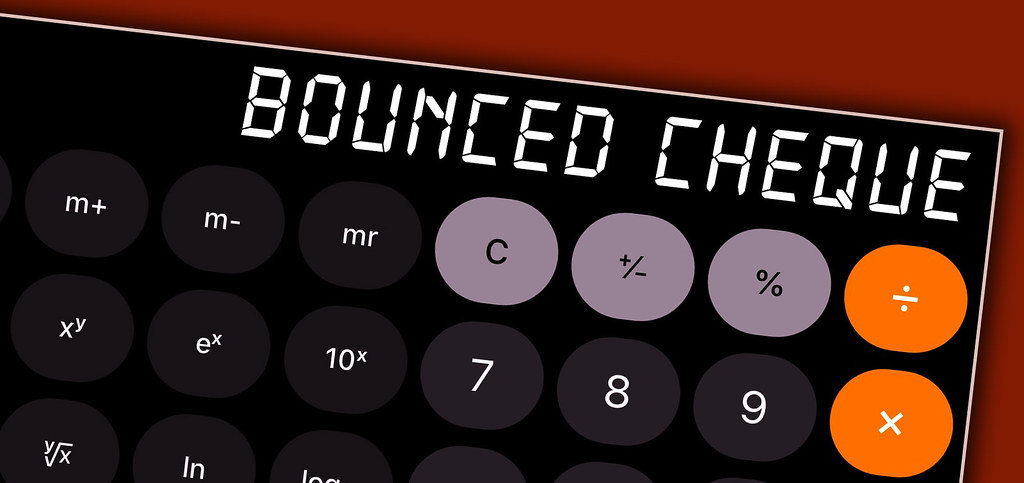“Typo” No Excuse: SC Quashes Complaint After Demand Notice Claims Double the Bounced Cheque

Introduction
Kaveri Plastics v. Mahdoom Bawa Bahrudeen Noorul[1], the Supreme Court of India held that a statutory demand notice demanding an amount different from the dishonoured cheque’s value is invalid, rendering any subsequent criminal complaint under Section 138 of the Negotiable Instruments Act, 1881, non-maintainable. The court affirmed the strict, technical interpretation of the law, rejecting the defence that a discrepancy in the amount was a mere typographical error. The ruling highlighted that for a notice to be valid, the demanded amount must precisely match the cheque amount.
Table of Contents
The Background of the Case
The legal dispute in Kaveri Plastics v. Mahdoom Bawa Bahrudeen Noorul originated from the dishonor of a cheque. The appellant, Kaveri Plastics, had issued a cheque to the respondent, Mahdoom Bawa Bahrudeen Noorul, for Rs. 1,00,00,000/-. When the cheque was dishonoured due to insufficient funds, Kaveri Plastics sent two demand notices to the respondent as required by law. However, both notices contained a significant error, demanding a payment of Rs. 2,00,00,000/-, double the amount of the original cheque.
The respondent subsequently moved to quash the criminal complaint filed by Kaveri Plastics, arguing that the demand notice was invalid because the amount demanded was different from the cheque amount. While a lower court initially rejected this plea, the Delhi High Court ultimately quashed the complaint. The appellant then brought the case to the Supreme Court, contending that the discrepancy was a mere typographical error and that the court should not rely on such a technicality to dismiss the case. This set the stage for the Supreme Court to consider the strict requirements for a legal notice under the Negotiable Instruments Act.
The Core Legal Issue
Does a statutory demand under Proviso (b) to Section 138 survive when the figure claimed is numerically different from the dishonoured cheque, even if the discrepancy is pleaded to be inadvertent?
The Ruling: A Strict Interpretation of the Law
The Supreme Court, upheld the High Court’s decision to quash the complaint, stressing the need for a strict and technical interpretation of the Negotiable Instruments Act, 1881. The court’s judgment was based on the specific language of Proviso (b) to Section 138, which requires a demand for “the said amount of money.”
The ruling made two critical points:
- Mandatory Compliance: The court held that the phrase “the said amount of money” refers exclusively to the amount of the dishonoured cheque. Therefore, a notice that demands a different amount, as was the case here, is fundamentally invalid and cannot be the basis for a criminal complaint. The court reasoned that the purpose of the notice is to give the drawer a precise and unambiguous opportunity to make the payment.
- Rejection of “Typographical Error”: The court dismissed the appellant’s argument that the incorrect amount was a mere typographical error. It noted that since the mistake appeared in both demand notices, it could not be considered an inadvertent slip. More importantly, the court affirmed that given the penal nature of the law, such a discrepancy is fatal to the notice’s validity, as it creates ambiguity and fails to meet the strict conditions required by the statute.
The judgment reaffirmed that while a notice can include additional, severable claims (like interest or legal fees), the core demand for the cheque amount itself must be clear and accurate. By demanding an inflated amount, the appellant failed to meet the statutory requirement, making the notice bad in law and the subsequent complaint non-maintainable.
Relevant Precedents
The court’s decision was supported by a review of relevant legal precedents that have shaped the interpretation of Section 138 of the Negotiable Instruments Act. The judgment specifically distinguished the current case from previous rulings to affirm its reasoning.
- Suman Sethi v. Ajay K. Churiwal & Anr.[2]: The Supreme Court referred to this case to clarify that a legal notice is not invalidated by the inclusion of additional claims like legal or interest charges, as long as the specific amount of the dishonoured cheque is also clearly and separately mentioned. In that instance, the additional claims were considered “severable,” meaning they could be separated from the core demand without affecting the notice’s validity. However, the current case was different: the notice demanded a lump sum that was incorrect, rather than demanding the correct cheque amount along with other severable charges.
- Central Bank of India v. Saxons Farms & Ors.[3]: The court cited this case to emphasize the purpose of a demand notice under Section 138. The precedent established that the notice is a mandatory step intended to provide the drawer with a clear and definite opportunity to pay the amount of the cheque, thereby avoiding criminal prosecution. The notice must contain a “demand for payment” that is unambiguous. The flawed notice in the Kaveri Plastics case failed this test by demanding an incorrect amount, which created ambiguity and denied the drawer the proper chance to settle the debt.
Conclusion
In Kaveri Plastics v. Mahdoom Bawa Bahrudeen Noorul, the Supreme Court of India dismissed the appeal, reinforcing the strict legal requirements for a valid demand notice under Section 138 of the Negotiable Instruments Act.
The court’s final decision highlights the principle that criminal prosecutions for cheque dishonour require meticulous adherence to the law’s conditions. It concluded that a notice is fundamentally invalid if it demands an amount different from the cheque’s face value, even if the discrepancy is claimed to be a typographical error. This ruling affirms that the burden is on the complainant to ensure the demand notice is precise and unambiguous, thereby providing the drawer with a clear and honest opportunity to settle the debt.
For more details, write to us at: contact@indialaw.in
[1] 2025 INSC 1133 (SPECIAL LEAVE PETITION (CRL.) NOS. 11184-11185/2024)
[2] (2000) 2 SCC 380
[3] 1999) 8 SCC 221
By entering the email address you agree to our Privacy Policy.



